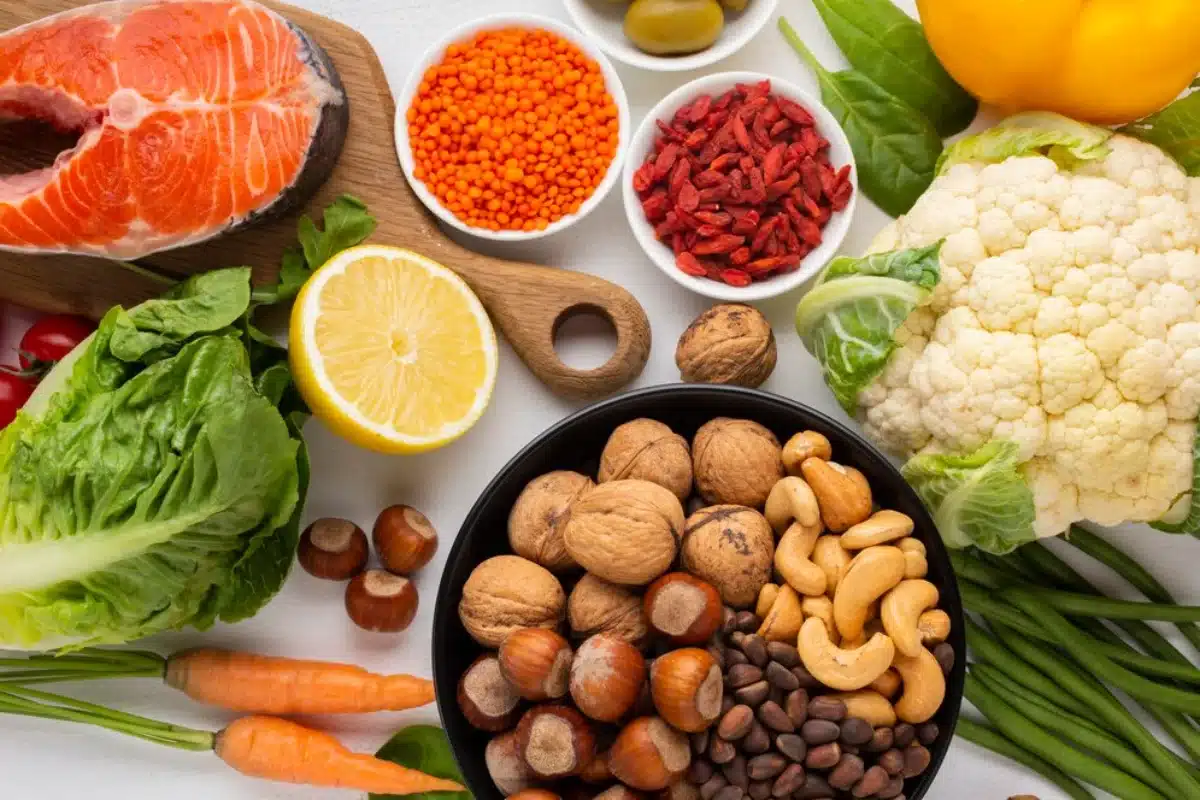
The Best Anti-Inflammatory Foods for a Healthier Life
Inflammation aids the body in recovering from injury or infection. But long-term inflammation can cause serious health issues, including heart disease, diabetes, arthritis and autoimmune diseases. Fortunately, you can manage and reduce inflammation with an anti-inflammatory diet, positively affecting your health.
This guide will detail how some of the best healing foods that fight inflammation, how diet potentially influences inflammation, and practical foods you can include to reduce inflammation in your meal. If you’re eager to stave off chronic diseases or simply feel better, these foods can make a big difference.

Understanding Inflammation and Its Effects on Health
Inflammation can be acute or chronic. Acute inflammation is a short-term response to injury or illness. Chronic inflammation lasts longer and can cause various diseases.
Common Causes of Chronic Inflammation:
- Poor diet (processed foods, lot of sugar, unhealthy fats)
- Lack of exercise
- Chronic stress
- Environmental toxins
- Obesity
By adjusting your diet to include anti-inflammatory foods, you can help regulate your immune response and lower health risks.

Top Anti-Inflammatory Foods to Include in Your Diet
1. Fatty Fish – Rich in Omega-3 Fatty Acids
Fatty fish like salmon, mackerel, sardines, and trout are full of omega-3 fatty acids, known for their strong anti-inflammatory effects.
Health Benefits:
- Lowers the risk of heart disease by reducing inflammation in blood vessels.
- Helps manage arthritis symptoms by easing joint pain.
- Supports brain health and lowers the risk of neurodegenerative diseases.
How to Include in Your Diet:
- Grill or bake salmon with herbs and lemon.
- Add sardines to salads or whole-grain crackers.
- Make homemade fish tacos with fresh veggies.
2. Berries – Packed with Antioxidants
Berries like blueberries, strawberries, raspberries, and blackberries are rich in antioxidants and polyphenols, which help fight inflammation.
Health Benefits:
- Reduces oxidative stress and lowers the risk of chronic diseases.
- Boosts brain function and improves memory.
- Supports a healthy immune system.
How to Include in Your Diet:
- Blend into smoothies with Greek yogurt.
- Add to oatmeal or whole-grain cereal.
- Snack on them with nuts.
3. Leafy Greens – Nutrient-Dense Powerhouses
Leafy greens like spinach, kale, and Swiss chard are high in vitamins, minerals, and antioxidants that help reduce inflammation.
Health Benefits:
- Lowers risk of heart disease and obesity.
- Improves gut health and enhances digestion.
- Provides essential vitamins K, A, and C for immune function.
How to Include in Your Diet:
- Toss into salads with olive oil and seeds.
- Sauté with garlic as a side dish.
- Blend into green smoothies.
4. Turmeric – The Golden Spice for Healing
Turmeric contains curcumin, a powerful anti-inflammatory compound with many health benefits.
Health Benefits:
- Reduces joint pain and alleviates arthritis symptoms.
- Supports liver function and aids digestion.
- Enhances brain health and lowers Alzheimer’s risk.
How to Include in Your Diet:
- Add turmeric to soups, stews, and curries.
- Mix with warm milk for a golden latte.
- Combine with black pepper to boost absorption.
5. Nuts and Seeds – Healthy Fats and Fiber
Almonds, walnuts, chia seeds, and flaxseeds are nutrient-dense foods that provide healthy fats and antioxidants.
Health Benefits:
- Supports heart health by lowering cholesterol.
- Offers protein and fiber for sustained energy.
- Helps manage blood sugar levels.
How to Include in Your Diet:
- Sprinkle on salads or yogurt.
- Use almond butter as a spread.
- Make homemade granola bars.
6. Green Tea – A Natural Anti-Inflammatory Drink
Green tea is rich in polyphenols and catechins, which help reduce inflammation and protect cells.
Health Benefits:
- Boosts metabolism and assists with weight management.
- Supports heart health by lowering blood pressure.
- Improves brain function and reduces stress.
How to Include in Your Diet:
- Drink 2-3 cups of green tea daily.
- Add lemon or ginger for extra flavor.
- Use as a base for iced teas or smoothies.
7. Olive Oil – The Heart-Healthy Fat
Extra virgin olive oil is full of monounsaturated fats and anti-inflammatory compounds that promote good health.
Health Benefits:
- Reduces risk of stroke and heart disease.
- Lowers body inflammation.
- Enhances skin health and prevents aging.
How to Include in Your Diet:
- Drizzle over salads and roasted vegetables.
- Use for sautéing or stir-frying.
- Add to homemade dressings and dips.

Foods to Reduce Inflammation
While focusing on anti-inflammatory foods, it’s also important to avoid those that trigger inflammation.
Foods That Promote Inflammation:
- Processed meats (sausages, hot dogs, deli meats)
- Refined carbohydrates (white bread, pastries, pasta)
- Sugary drinks (soda, fruit juices with added sugar)
- Fried and fast foods (chips, deep-fried items)
- Excessive alcohol
Reducing or cutting out these foods can further boost the benefits of an anti-inflammatory diet.
FAQs About the Anti-Inflammatory Diet
1. How long does it take for an anti-inflammatory diet to work?
You may see improvements within a few weeks, but major health benefits often come after several months of healthy eating.
2. Can an anti-inflammatory diet help with weight loss?
Yes, many anti-inflammatory foods are low in processed sugars and unhealthy fats, aiding metabolism and supporting weight loss.
3. Is coffee inflammatory?
Moderate coffee intake is generally neutral or beneficial due to its antioxidants, but too much may cause inflammation.
Leading to a Healthy Life!
A diet high in anti-inflammatory foods can encourage long-term health, reduce the risk of chronic disease, and increase well-being. Fortunately, fatty fish, berries, leafy green, nuts, and green tea are all foodstuffs that can help to fight inflammation naturally.
Replace processed food with whole foods that are rich in nutrients, and slowly introduce the best healing foods into your life. Your body will thank you!
What are your go-to anti-inflammatory foods? Let us know what you think in the comments below!


